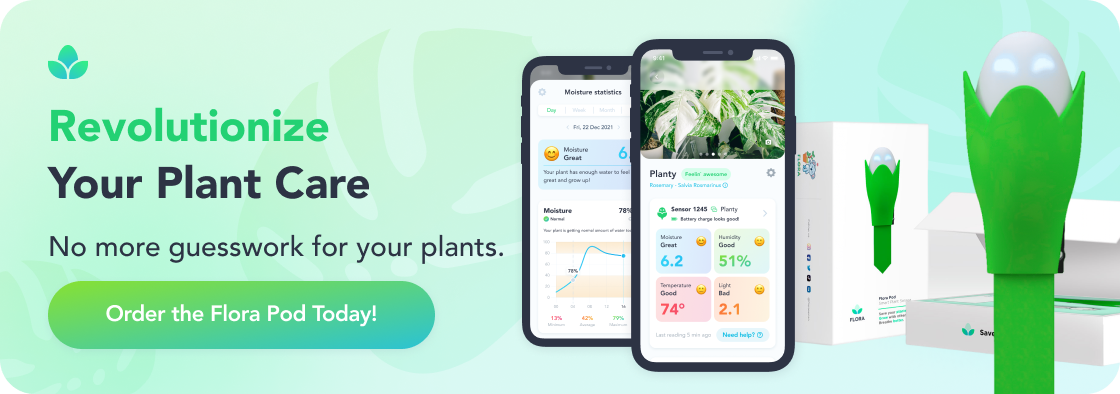Oxalis Water Requirements: A Quick Guide

Oxalis, with its charming foliage and blooms, is a popular choice among houseplant enthusiasts. Understanding the water requirements for Oxalis is essential to ensure its health and vitality.
Oxalis, including the Oxalis deppei and the widely cherished Oxalis triangularis, possesses a notable drought tolerance, reflecting its resilience and adaptability to various moisture conditions. Here's an 0-look into the optimal watering practices for Oxalis to maintain its vibrant appearance and ensure robust growth.
How Often to Water Oxalis?

Key Factors Influencing Watering Frequency
Environment: The indoor environment, including light exposure, temperature, and humidity, plays a significant role in determining how often Oxalis needs water. Plants in brighter, warmer conditions may require more frequent watering than those in cooler, shaded areas.
Season: Oxalis' water needs change with the seasons. During the active growing season in spring and summer, the plant may need more water due to increased evaporation and growth. In contrast, during the cooler months or when the plant enters dormancy, watering should be reduced significantly.
Soil Moisture: Checking the soil moisture is a reliable method to determine when to water. Allow the top inch of the soil to dry out before watering again. This practice helps avoid both over and under-watering, providing the plant with the right amount of moisture it needs to thrive.
Plant Needs: Different Oxalis species may have slightly varying water requirements. Being attentive to your plant's specific needs and observing any signs of stress can help you adjust your watering schedule accordingly.
General Watering Guidelines
Watering Frequency
As a general rule, water your Oxalis when the top inch of the soil feels dry to the touch. This might translate to watering once every 1-2 weeks, but always verify soil moisture before watering.
Avoid Over-watering
Ensure that your pot has adequate drainage to prevent waterlogging. Oxalis does not tolerate soggy soil well, as it can lead to root rot and other issues.
Seasonal Adjustments
Reduce watering frequency during the plant's dormancy period, typically in the fall and winter, to match the plant's reduced water uptake.
Environmental Adjustments
Be mindful of changes in indoor conditions, such as increased use of heating or air conditioning, and adjust your watering practices as needed to maintain optimal soil moisture.
Watering Practices
Assessing Soil Moisture
Regularly checking the soil moisture can guide your watering schedule. You can do this by simply touching the soil with your finger or using a moisture meter for more accuracy. If the top inch feels dry to the touch, it's time to water your Oxalis. During the active growing season, typically in the spring and summer, you may find that your Oxalis requires more frequent watering due to increased evaporation and the plant's growth demands.
Watering Technique
When watering Oxalis, use lukewarm water and aim to water the soil directly, avoiding wetting the foliage, as this can lead to fungal diseases. Ensure that your Oxalis pot has adequate drainage holes to allow excess water to escape, preventing any potential waterlogging issues. A soaker hose, watering can with a long spout, or drip irrigation system can be effective tools for providing even moisture without disturbing the plant or the soil too much.
Seasonal Adjustments
The need for water will vary with the seasons. During the warmer months, Oxalis may require more frequent watering to combat the heat and increased sunlight exposure. Conversely, in the cooler months, especially when the plant may enter a period of dormancy, reduce watering significantly. This reduction helps prevent root rot and accommodates the plant's decreased water uptake during its rest phase.
Environmental Factors
Indoor conditions such as heating in the winter and air conditioning in the summer can affect the humidity and temperature around your Oxalis, potentially altering its water needs. Plants placed in brighter, warmer locations may need more frequent watering compared to those in cooler, shaded areas. Monitoring these environmental factors and adjusting your watering routine accordingly will support the overall well-being of your Oxalis.
Other Aspects that Affect Water Requirements

Soil and Planting
For optimal growth, Oxalis triangularis requires well-draining soil that prevents waterlogging, which can lead to root rot. A mix of potting soil, perlite, and sand is ideal for achieving the right drainage. Incorporating organic matter such as compost or peat moss can improve soil structure, water retention, and nutrient content.
Light and Temperature
Oxalis thrives in bright, indirect light and moderate room temperatures between 65°F to 75°F (18°C to 24°C). Avoiding extreme temperatures and providing a few hours of gentle morning or afternoon sun without exposing the plant to prolonged direct sunlight is advisable to prevent leaf burn.
Humidity and Air Circulation
While Oxalis prefers average room humidity levels, maintaining a humidity level around 50-60% is beneficial. If your indoor air is too dry, especially during winter, consider using a humidifier or placing a tray of water near the plant to increase humidity. Ensuring good air circulation can also help prevent issues related to excessive moisture, such as fungal diseases.
Fern's Leafy Learnings
Assess Before You Water: Always check the top inch of soil for dryness before watering your Oxalis. This simple check ensures you're providing moisture only when your plant truly needs it, preventing both underwatering and overwatering.
Seasonal Watering Wisdom: Understand that your Oxalis's thirst changes with the seasons. It'll drink up more during the active growth periods of spring and summer, while you should dial back on watering during its dormancy in cooler months.
Drainage is Crucial: To keep your Oxalis happy, ensure it's planted in well-draining soil within a pot that allows excess water to escape. This setup mimics the plant's natural environment and keeps root rot at bay.
Environment Affects Thirst: Your Oxalis's watering needs are influenced by its environment. Plants in warmer, brighter spots may need more frequent watering compared to those in cooler, shaded areas. Adjust your watering schedule based on these conditions for optimal plant health.
Dormancy Care: Recognize the signs of dormancy in your Oxalis and adjust your care routine accordingly. Less water and no fertilizer during this period will help your plant rest and rejuvenate for the next growth cycle.
Deepen Your Roots with Flora
At Flora, we not only bring you a vibrant selection of locally sourced, rare, and delightful plants, but we also serve as your continuous guide in your plant parenting voyage, ensuring every leaf in your sanctuary thrives. With our Flora Pod™ technology and a nurturing community of over 250,000 plant lovers, we cultivate a space where every plant parent - novice or expert - can blossom.
We propagate with a commitment to sustainability, connection, and ceaseless growth, fostering a community where each member, and their plants, are cherished and nurtured.
Crave a lush, thriving green space? Adopt a plant from Flora today!
Flora Pod™ is featured on Shark Tank!

5 Signs Your Houseplant Needs Repotting Now
Mar 02, 2026
6 Anthurium Benefits You Didn't Know About
Mar 02, 2026

How to Prune Your Houseplants Before Spring Growth Season
Mar 02, 2026

10 Best Houseplants for Spring Repotting Success
Mar 02, 2026

Can ZZ Plants Survive in Low Light Conditions?
Mar 02, 2026

5 Critical Pre-Spring Pruning Tips for Houseplants
Mar 02, 2026

Can Succulents Survive Winter Outdoors in Your Climate Zone?
Mar 02, 2026

Which Houseplants Are Toxic to Cats and Should You Avoid Them?
Mar 02, 2026




